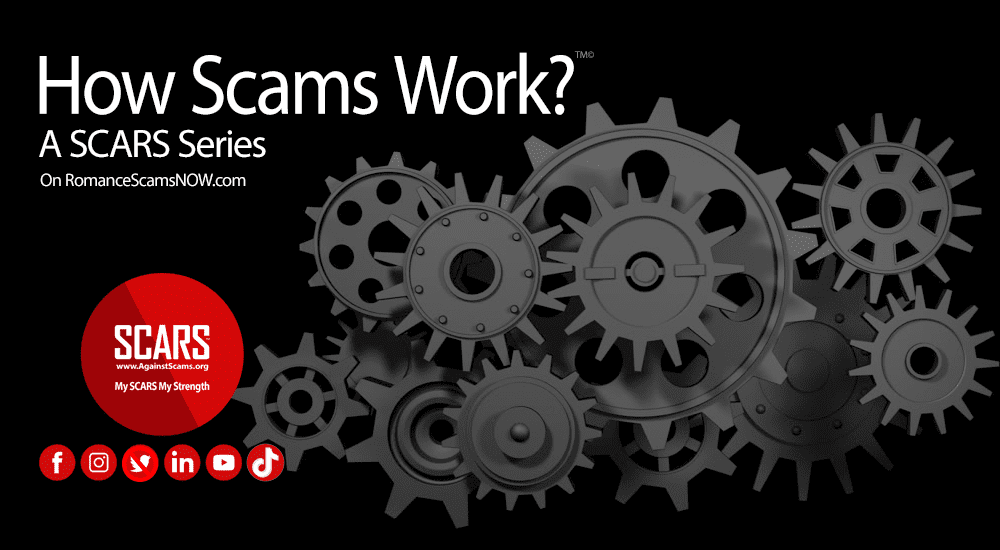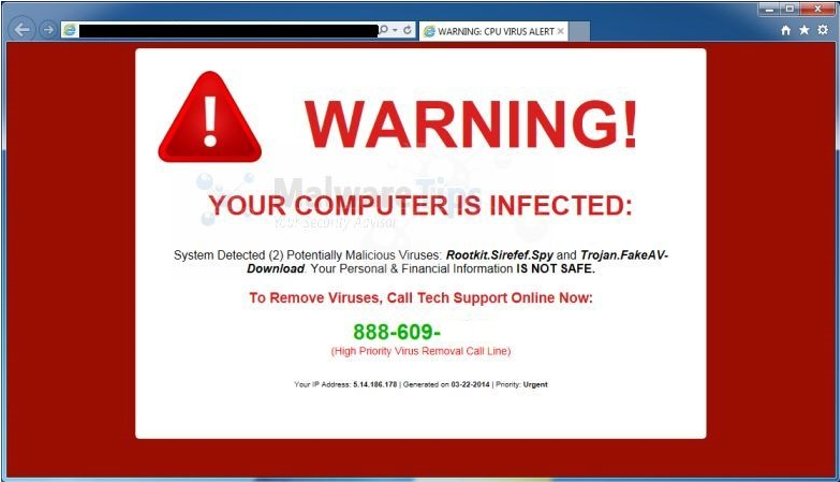“Warning: Your Device Is Infected”
Almost every internet user has had at least one run-in with scareware, one of the most lucrative forms of malware. A telltale sign of scareware is a sudden frightening prompt claiming a virus has been detected. Knowing this and other signs can prevent you from getting scammed.
What Is Scareware?
Scareware is the introduction point for Tech Support Scams by trying to convince consumers that their device is infected or compromised.
Scareware is typically heralded by an ad with a big warning button saying your device is infected, or that somehow your privacy or finances are at risk. Scammers cast their lures both on desktop computers and mobile phones, making the scareware a platform-agnostic menace.
According to BitDefender: Scareware is both malware and a social engineering tactic meant to cause shock, anxiety or fear to manipulate users into buying a program or service to fix it. It sits in the same class as ransomware, as both threats seek to manipulate the victim into paying the scammer.
Some forms of spyware also qualify as scareware. These versions of spyware change the user’s desktop background or install icons in the notification area and claim that some kind of virus has infected the computer. The scareware app then advertises itself as the fix to this problem.
Pop-Ups From Hell
One of the first signs you’re dealing with scareware is the menacing nature of the pop-up ad bulging and blinking at you to take action. These are typically very difficult to close, and in fact, ANY click on them can hijack you to the scammer’s website. The best solution is to either close the browser tab (if it will let you) or close the browser completely. Then restart the browser clean and navigate to where you need to be.
IMPORTANT: if you close your browser, DO NOT RESTORE your previously open tabs – since this will reopen the Scareware too. If you need to, go into the history in your browser and click on the recent pages to open them again.
Ads Too!
Another is the name of the advertised product meant to rid you of the threat. The ‘solution’ typically contains the name Cleaner, Defender or Remover.
DON’T CLICK ON ANYTHING – ESPECIALLY DO NOT SELECT ANY OFFERED PRODUCT OR SERVICE!
Not only is this virus remover fictional or non-functional, but it may also even harbor additional malware.
Tech Support Scammers
Tech support scammers – like those exposed by Kitboga and Scammer Payback – use these exact tricks to get into victims’ heads and persuade them to transfer money or buy gift cards and relay back the codes.
Many will go to great lengths to persuade the victim to install remote-desktop software, like TeamViewer, so the scammer can take over the victim’s computer. The scammer’s true goal here is to pilfer login credentials, banking information, or personal files for extortion. Never give strangers remote access to your computer! Don’t do it!
How To Defend Yourself
Always be on the lookout for these signs. Remember, ads that sound a bit too threatening or scary are most likely an attempt to land a real threat on your system.
Only buy antivirus software from reputable sources.
We recommend either MalwareBytes or BitDefender – both are world-class anti-malware protection.
AV vendors will promote awareness around a threat, leaving it to the user to decide which solution works best for them. Reputable vendors will never use scare tactics to frighten the user into buying a “virus remover.”
Portions courtesy: BitDefender
To Learn More Also Look At Our Article Catalogs
Scam & Crime Types
More SCARS
- ScamsNOW Magazine – ScamsNOW.com
- ContraEstafas.org
- ScammerPhotos.com
- AnyScam.com – reporting
- AgainstScams.org – SCARS Corporate Website
- SCARS YouTube Video Channel












Leave A Comment